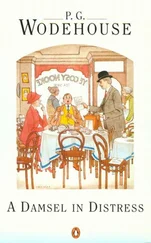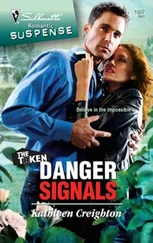THE AMERICANS had slept their last night at the inn. That was the end of mattresses for them. They’d spend the Monday night in hammocks on the Belle , roped to the quay at Wherrytown but ready for the Tuesday’s swelling tide and for the eight hard, pieless weeks at sea which separated them from home.
Their ship had been refitted in a breathless seven days. It would have taken seventeen — or seventy? — if Walter Howells hadn’t been there, with his quick eye and his belief in shaving costs rather than shaving badly fitting wood. Was he their captain on the land? Their own Captain Comstock hardly bothered to speak. He still seemed beached. Dry-docked. An Admiral Driftwood who had turned green and queasy as soon as he’d come ashore. But Walter Howells was a Napoleon: shorter, fatter and more demanding by the day. He’d told ten of the younger, fitter sailors that they had to get out of their beds at dawn that Monday morning to fetch the cattle and the stores from Dry Manston beach. He should have sent ten older, calmer men. They would have done less harm. He woke the Americans himself; he never seemed to sleep. The sailors only had to pull their boots and surtouts on. They slept in shirts and breeches. They didn’t wash themselves. Tobacco took the smell away.
Walter Howells provided two narrow, open wagons and a pair of nags. He told them not to touch the smaller herd of cattle, but to drive the larger group back to Wherrytown for re-loading on the Belle . He gave them two black bottles. ‘Keeps you warm,’ he said. ‘And quiet, I hope.’ He winked. He put his fingers to his lips. The sailors didn’t give a damn what Walter Howells was up to. Fewer cattle, less work, was all that bothered them. What mattered most, once they were up and out, was that they were freed from the dullness of the town and not yet prisoned by the sea. Two nags, two wagons, two bottles, and the whole day to themselves. They would have a high time on the coast. Still farting Sunday’s beef and beer and creased with sleep, they left the courtyard and made a noisy exit west.
Ralph Parkiss was their guide. He knew the coastal path. He led them out of Wherrytown along a half-flagged lane. Some of the sailors sat on the wagon ends and smoked. Some walked ahead with Ralph. They only had to give the horses gentle tugs at first, but once the lane and flagstones ended and they had to climb on softer ground into the wind the horses became obstinate. They dropped their heads, and tried to back the wagons home.
How should the sailors navigate a horse? They tugged the ropes as best they could, but made no better progress than an ostler would if he were put behind a ship’s wheel and told to sail it to America. It would have taken them all day to reach Dry Manston beach, if Palmer Dolly hadn’t come by on his way to the quay. They pressed him into helping them. He showed them how a wagon horse was like a fishing boat, steered by the rudder, from the back. He found two sticks, and beat the horses on the flanks. They soon put up their heads and rattled off along the paths. Once they’d reached the granite levels above the town, the walkers had to run to keep up with the wagons, and the riders had to put their pipes away and hold on with both hands.
‘In’t there no horses in America?’ Palmer Dolly wanted to know. And, ‘What will a dollar buy?’ And, ‘Has Captain Comstock got a man to take Nathaniel Rankin’s place?’ The sailors amused themselves with lies. No, they hadn’t any horses in America, not yet. The farmers there rode goats. One dollar bought one dozen goats, and there was money left for saddles. No one with any sense would want Nathaniel Rankin’s place. His place was up the topmast with a stick, night and day, knocking seagulls off the rigging, ‘for no one travels free on board the Belle , not even birds’. Palmer knew they were teasing him. He didn’t care. He was happy to belong, and to prove how useful he could be, even if there weren’t any horses in America, even if the captain had already said he couldn’t crew with them. He had a better plan. He’d stow away. He’d take his dollar on the Belle .
The riders were numb to the bone with cold when they arrived on the bluffs above Dry Manston, late in the morning. The walkers were as warm as toast, except their faces and their hands. Ralph Parkiss went across to the bench where he’d carved his initials, nine days before. Had they survived the snow? Someone had ringed his carving with a heart and inexpertly added more initials: M.B. Miggy Bowe! Ralph blushed with pleasure. She must have come and seen his name carved in the wood. She’d found a stone and scratched her love for him. A heart, containing both of them. He ran his fingers around the heart. He kissed his fingers and he pressed them to the wood. He would have put his lips on to the wood if he had been alone, and tongued the letters of her name. If only he could slip away, and hold his Miggy in his arms.
He rejoined the wagons and the sailors as they began their descent to the beach. The tide was high up on the shore. The strongest waves fell just short of the dunes. The horses were not happy going down. The rocks were steep and slippery, and all the sailors had to hold the wagons from behind or let them tumble with the horses onto the beach. It took them more than an hour to negotiate the rocks and reach a wider and less steep path. First came grassy heathland, then salty flats littered with the flotsam of the winter tides, and then the shifting dunes, so flimsy at the edges of the sea that even the roar of breakers, eighty yards away, and the rattle of the tide throwing pebble dice, were all it took to make the dune sand blink, and separate, and slip.
The wagons sank into the sand. They’d have to leave them at the edges of the dunes and lug the ship’s stores over by hand. Unless the horses could be forced, of course. Palmer shook his head. ‘They in’t gonna shift,’ he said. ‘They’ve had enough for now. Leave ’em to their bit o’ grass.’ Ralph Parkiss thought he knew better. He tried to pull one of the nags by its head. He held it by the headstall. And tugged. Perhaps there really weren’t any horses in America, thought Palmer. Ralph didn’t seem to know that horses could nip. And hard. He watched the old horse nuzzle Ralph’s shirt. He saw it bite. Ralph could hardly breathe for pain. When he opened up his shirt, there was a bleeding four-inch bruise in the soft flesh of his stomach.
His shipmates made the most of it. ‘Don’t let your Miggy see that, Ralph, not on your wedding night.’
‘A horse had its mouth inside your shirt? Oh, yes! She’ll think you’ve found another girl.’
‘She’ll think the mare was Mrs Yapp. She’s got the teeth!’
They poured a drop of spirit from one of Walter How-ells’s black bottles onto the wound. Ralph could hardly breathe again. The pain came back. ‘That’s firing stuff,’ he said.
‘Let’s taste it, then!’ They passed both bottles round.
‘It’s bottled tar,’ one man suggested.
‘It’s pilchard gin!’
‘It’s Devil’s piss and vinegar.’
Palmer Dolly told them it was treacle rum. He’d never liked the taste of it, but still he drank and passed the bottle on.
‘Dear Lord, it’s firing stuff,’ Ralph said again. ‘I need a bit of air.’
‘There’s air enough out here to last a lifetime.’
‘It’s not this air I want,’ Ralph said. ‘I want some air down there.’ He pointed along the coast towards the cottages at Dry Manston. It was half a mile to Miggy’s home. He could run along the beach and be with her, and then be back within the hour. ‘I’ll not be missed, I hope.’ His shipmates jeered when he walked off — ‘Go on then, boy. Don’t let her get inside your shirt’ — but it was only jealousy. If each of them were young and had a girl a half a mile away, they wouldn’t feel so wild and mischievous. Perhaps if Ralph hadn’t been the greenhorn of the crew they would have mocked him more cruelly. Seasoned sailors didn’t lose their hearts to girls like Miggy. They couldn’t marry every girl they kissed. But Ralph was still a novice. That was his charm. He gave his heart quite readily.
Читать дальше












